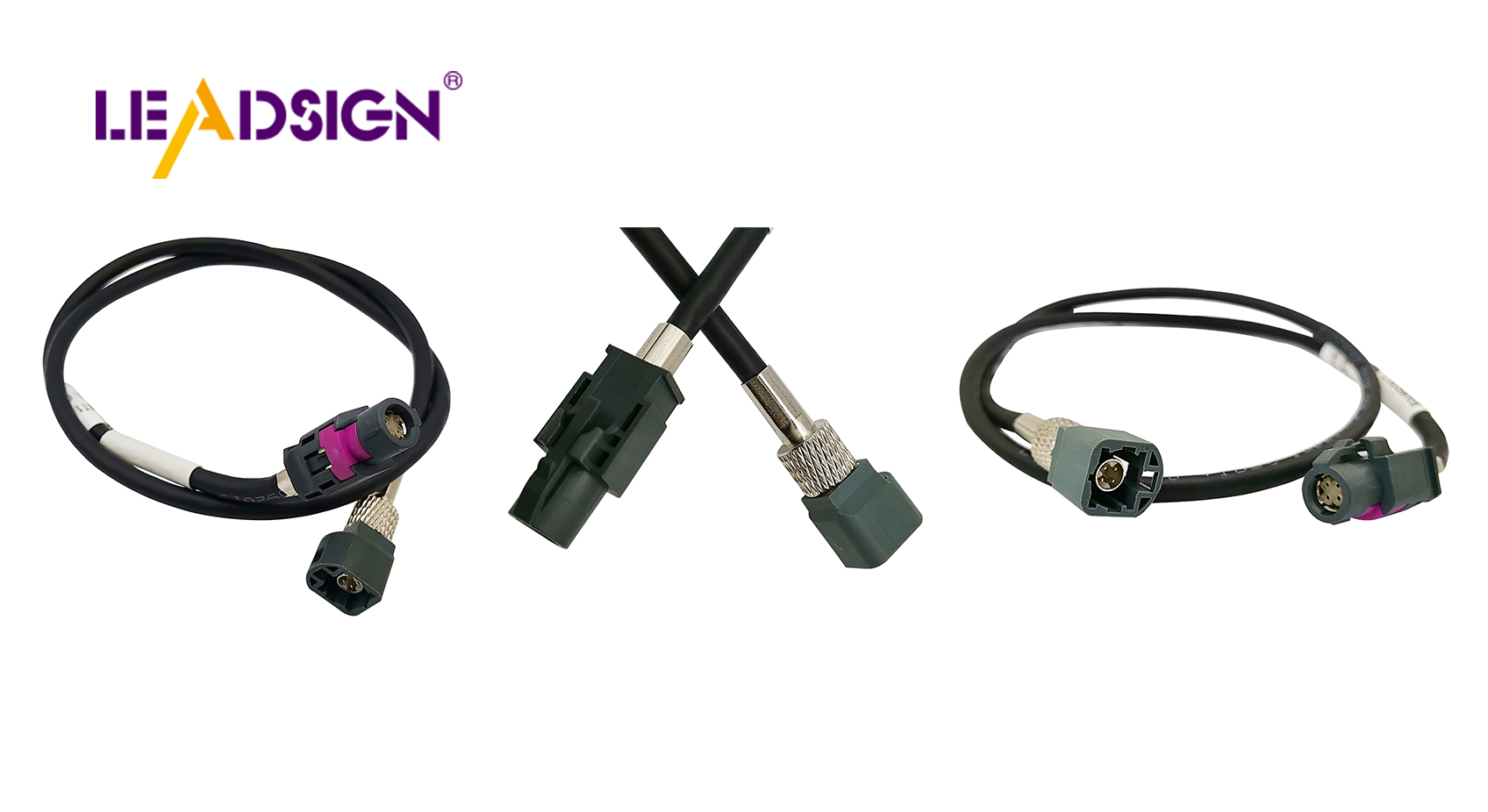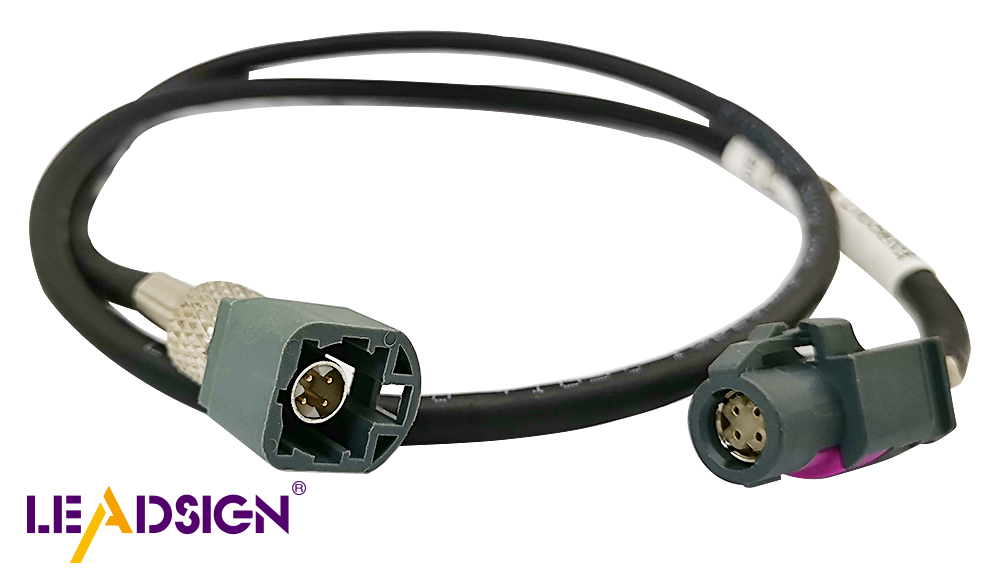Choosing the Right Car Wire Connector Types: A Guide

Choosing the right automotive electrical connectors types is crucial for your vehicle's performance and safety. Selecting the wrong connector can lead to significant issues, as connectors are more prone to failure than airplane wires. This can result in electrical malfunctions or even pose safety hazards. It's essential to utilize the appropriate connectors to mitigate these risks, ensuring your car operates smoothly and safely while minimizing unexpected problems.
Understanding Automotive Electrical Connectors Types

When fixing your car's electrical system, knowing the different automotive electrical connectors types is important. Each type does a special job and helps your car's parts work right. Let's look at some common connector types you might see.
Blade Connectors
Blade connectors are very popular automotive electrical connectors types. They have flat metal ends like blades. These connectors fit into a matching slot to make a strong connection. Blade connectors are great when you need to connect and disconnect wires often. You can find them in car lights and other low-power uses. Their design makes them easy to put in and take out, which is handy for many car owners.
Bullet Connectors
Bullet connectors are good for joining wires in your car. They look like bullets and fit tightly into a matching socket. Bullet connectors are best when you need a tough connection that won't shake loose. They're used in motorcycle wiring and other tight spaces in cars. The snug fit of bullet connectors keeps connections secure, even on bumpy roads.
Butt Connectors
Butt connectors join two wires straight together easily. Use these when you need to make wires longer or fix them in your car. Crimping the wires inside makes a strong hold that lasts. Butt connectors work well for many car jobs, from fixing broken wires to adding new parts. Their simple use makes them liked by both hobbyists and experts.
Knowing these automotive electrical connectors types helps you choose wisely when working on your car. Each type has its own perks, so you can find the best one for what you need. Picking the right connectors boosts how well your vehicle runs and stays reliable.
Ring and Spade Terminals
When fixing your car, you might see ring and spade terminals. These are important connectors that hold wires to a post or stud. Ring terminals have a round end that fits over a bolt or screw. This shape makes them great for grounding or battery connections.
Spade terminals look like forks. You can slide them under a screw without taking it out. This makes them easy for quick fixes. Both ring and spade terminals give strong connections, keeping your car's electrical system working well.
Weatherproof Connectors
In wet or dirty places, weatherproof connectors are very important. These connectors keep water and dirt away from the wires. You find them in places like engine parts or outside lights.
Weatherproof connectors have seals to stop water from getting in. This helps keep the connection safe from rust or problems. By using weatherproof connectors, your car's electric parts stay safe even in tough spots.
Knowing these connector types helps you choose wisely for your car work. Each type has its own job, helping your car run better and safer.
Important Things to Think About for Connectors
When picking automotive electrical connectors types, think about key things. These help your car's electric system work well and safely.
Power and Voltage Limits
First, look at the power and voltage limits of connectors. These show how much electricity they can handle. Using the wrong one can cause overheating or breakage. Always match these limits with what your car needs to avoid problems.
Surrounding Conditions
Next, consider where the connectors will be used. Some parts of your car might get wet, dirty, or very hot. In such places, weatherproof connectors are a must-have. They have seals that keep out water and dirt. They are great for outside or tough spots, keeping connections strong and safe.
Connector Materials
The materials of connectors matter too. Different ones have different strength and electricity flow levels. Good metal ones let electricity pass better and don't rust easily. Picking the right material makes sure your automotive electrical connectors types last longer and work well.
By thinking about these important points, you can pick the best connectors for your car. This careful choice keeps your car running smoothly and safely, giving you peace on the road.
Wire Size Compatibility
When picking automotive electrical connectors types, make sure they fit the wire size. This is important for a strong and good connection. If the connector is too big or small, it can cause bad electricity flow or even come loose.
Why is Wire Size Important?
Electrical Flow: The right size helps electricity move well through wires. A wrong fit can cause heat or power loss.
Secure Connection: Right-sized connectors hold wires tight, stopping them from coming apart by accident. This matters in cars with lots of shaking.
Safety: Using the right size lowers the chance of shorts or fires, keeping your car safe.
To get the right size, check the wire thickness and pick connectors made for that thickness. This easy step can help your car work better and be safer.
Engagement Force and Termination Methods
Engagement force and termination methods are key when choosing automotive electrical connectors types. Engagement force means how hard it is to connect or disconnect wires. You want a connector that's easy to use but holds tight.
Considerations for Engagement Force:
Ease of Use: Pick connectors needing medium force to connect. They stay put during use but aren't too hard to undo.
Security: Good engagement force stops wires from coming apart by mistake, which is crucial in moving cars.
Termination Methods:
Crimping: This squeezes the connector onto the wire for a strong hold, often used in cars.
Soldering: Melting metal joins wire and connector well, great where there's lots of shaking.
Screw Terminals: Tighten screws to attach wires; they're simple and good for changing connections often.
Each method has its perks. Choose based on what you need and where you'll use them. By thinking about these things, your automotive electrical connectors types will work safely and well.
Ensuring Quality and Compatibility
Importance of Quality
Pick good connectors for your car. Good ones keep the electric system working well. They stop problems like getting too hot or breaking. Choose connectors with the right power levels to stay safe.
Key Points to Consider:
Material Composition: Use connectors made from strong materials. They should let electricity flow well and not rust. This makes them last longer.
Current and Voltage Ratings: Make sure they can handle the needed power. This stops overheating and keeps things safe.
Durability: Strong connectors handle bumps when driving. This strength helps avoid problems.
By thinking about these things, your car's electric system stays safe and works well.
Compatibility with Vehicle Systems
Make sure connectors fit your car's systems. Right ones make everything work better and safer.
Steps to Ensure Compatibility:
Check Pin Size and Number: Look at pin size and number on models. This ensures they fit right and work properly.
Assess Functionality: Check if they do what your car needs them to do.
Consider Environmental Factors: Pick ones that can handle weather changes, like rain or heat.
Following these steps helps you choose connectors that match your car's systems well, making it run smoothly.
Choosing the right connector for your car is very important. It helps your car's electrical system work well and safely. Think about these things:
Electrical Ratings: Make sure connectors fit your car's power needs.
Environmental Factors: Use weatherproof connectors in wet or dirty spots.
Material Quality: Pick strong materials that don't rust.
Check if the wire size fits and how to connect them. If you're not sure, ask experts. They can help you pick the best connectors for your car. This careful choice keeps your car working well and safely.
See Also
Everything You Need To Know About Fakra Connectors
Understanding Ford's Use Of Fakra Connectors
Why FAKRA Connectors Matter In Automotive Technology

